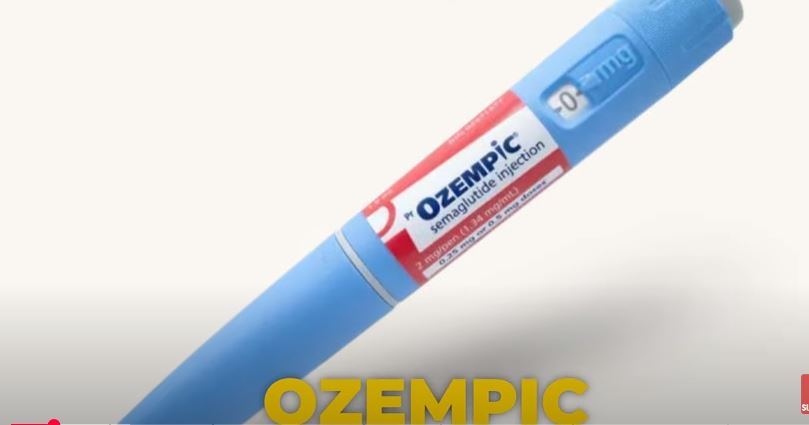Ozempic has become a breakthrough in diabetes management and weight loss, but like all medications, it has potential side effects. While its weight loss benefits are well-known, there’s a lesser-discussed impact on oral health—specifically, dental issues like tooth decay and enamel erosion. By understanding how Ozempic affects your teeth, you can take steps to protect your oral health while still benefiting from this medication.
The Rise of “Ozempic Teeth”: What’s Behind This Unusual Side Effect?
While “Ozempic teeth” is not an officially recognized medical term, it’s gaining attention due to the dental problems associated with the medication. Users may experience a combination of issues such as dry mouth, tooth sensitivity, and even tooth loss. These problems stem primarily from dry mouth and vomiting, both common side effects of Ozempic.
Dry mouth (xerostomia) reduces the saliva necessary to protect teeth from acids and bacteria, which can lead to increased cavities, gum disease, and bad breath. Vomiting, another common issue for some users, introduces stomach acid into the mouth, accelerating enamel erosion.
Dry Mouth: The Silent Culprit Behind Tooth Decay
Dry mouth is one of the most frequent complaints among Ozempic users. Saliva plays a crucial role in oral health, neutralizing acids, washing away food particles, and protecting tooth enamel. Without sufficient saliva, the risk of cavities and gum disease increases.
When saliva production is impaired, plaque buildup becomes more likely, leading to tartar and potentially gum inflammation. Maintaining an excellent oral hygiene routine becomes especially important in this case to mitigate the damage caused by dry mouth.
The Role of Vomiting: How Stomach Acid Destroys Your Teeth
Vomiting is an unfortunate side effect for many Ozempic users, and it can cause significant damage to your teeth. When stomach acid enters the mouth, it can erode tooth enamel—the protective outer layer of teeth. This can cause tooth sensitivity, discoloration, and increased susceptibility to cavities, especially for the back teeth.
Repeated vomiting exacerbates this issue, leading to accelerated enamel erosion and greater dental damage over time.
Acid Reflux: A Compounding Factor for Ozempic Users
In addition to vomiting, acid reflux is another possible side effect of Ozempic. This occurs when stomach acid rises into the esophagus and reaches the mouth, contributing further to enamel erosion. For those already suffering from dry mouth, acid exposure compounds the damage, making it even harder for the mouth to defend against decay.
How to Protect Your Teeth While Taking Ozempic
Despite the risks, there are ways to protect your teeth while continuing treatment with Ozempic. Here are some helpful steps you can take:
- Stay Hydrated: Drink plenty of water throughout the day to help stimulate saliva production and keep your mouth moist. This helps neutralize acids and fight off bacteria.
- Use Saliva Substitutes: If dry mouth persists, consider using over-the-counter saliva substitutes to maintain moisture in the mouth.
- Chew Sugar-Free Gum: Chewing gum stimulates saliva flow and helps clean food particles from your teeth.
- Rinse After Vomiting: After vomiting, rinse your mouth with a mixture of water and baking soda to neutralize stomach acids and prevent further enamel erosion.
- Brush and Floss Regularly: Maintain a consistent oral hygiene routine—brush twice daily with fluoride toothpaste and floss once a day to keep plaque and bacteria at bay.
Expert Insights on Ozempic and Dental Health

Experts have weighed in on the impact of Ozempic on oral health and offer valuable advice for maintaining your teeth during treatment.
| Expert Name | Specialty | Key Insights |
|---|---|---|
| Dr. Catrise Austin | Cosmetic Dentistry | Emphasizes hydration and regular dental checkups for Ozempic users. |
| Dr. Ehsan Ali | Internal Medicine | Recommends nutrient-rich meals and consistent oral hygiene to prevent dry mouth. |
| Dr. Sandip Sachar | Dentistry | Highlights early intervention to prevent enamel erosion and gum disease. |
Restorative Treatments: How to Fix “Ozempic Teeth” Damage
If your teeth have already been affected by enamel erosion or other issues while on Ozempic, restorative treatments may be necessary. Options like dental bonding, crowns, or veneers can help restore the function and appearance of your teeth. In severe cases, full-mouth rehabilitation may be required. Working with your dentist, you can explore the best solutions to reverse or manage the damage caused by medication side effects.
Diet Matters: Supporting Your Teeth with Nutrient-Rich Foods
While Ozempic may suppress appetite, it’s crucial to maintain a balanced, nutrient-rich diet to support both overall and oral health. Nutrients like calcium, vitamin D, and vitamin C are essential for bone health and gum health. Try incorporating more dairy, leafy greens, and fruits into your meals to give your teeth the nutrients they need to stay strong.
9. Should You Stop Using Ozempic for Oral Health Concerns?
If you’re concerned about your oral health while using Ozempic, it’s important not to make any hasty decisions. The benefits of Ozempic for managing diabetes and aiding weight loss often outweigh the risks to dental health for most people. However, if dental problems become severe, it’s essential to consult with your healthcare provider. They may recommend adjusting the dosage or introducing additional treatments to protect your teeth.
10. “Ozempic Teeth”: A Growing Concern for Users
As more people report dental issues related to Ozempic, the phenomenon of “Ozempic teeth” is gaining attention. What was once anecdotal evidence is now a recognized concern among healthcare professionals. With the rising number of users experiencing dental side effects, increased awareness and preventative care are becoming essential.
11. Expert Advice on Protecting Your Teeth While on Ozempic
Leading dental professionals offer essential advice to protect your teeth while on Ozempic. Experts like Dr. Catrise Austin and Dr. Ehsan Ali stress the importance of staying hydrated, practicing good oral hygiene, and visiting your dentist regularly. These simple but highly effective steps can significantly reduce the risk of dental damage caused by dry mouth, vomiting, and acid reflux.
Conclusion
While Ozempic has revolutionized diabetes and weight management, its potential impact on oral health shouldn’t be overlooked. Side effects like dry mouth, vomiting, and acid reflux can lead to significant dental issues if not managed properly. By staying hydrated, maintaining good oral hygiene, and working closely with your dentist, you can minimize these risks and continue benefiting from the medication.
Being proactive about your dental care can help you protect your smile while reaping the full benefits of Ozempic.
For further insights on maintaining oral health while using Ozempic, check out trusted resources like Healthline.
